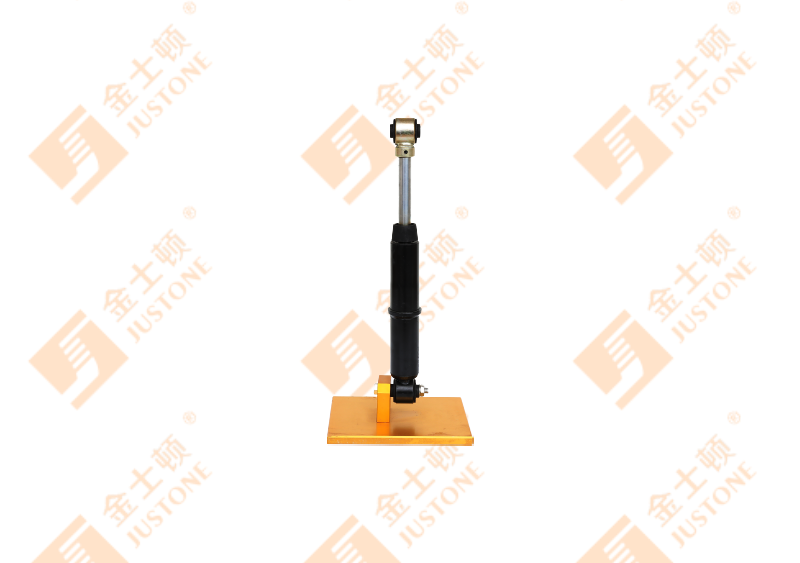Didn't find a product that suits you?
Contact us for the latest news.
Trailer shock absorbers play a vital role in ensuring a smooth, stable, and safe towing experience. These components help control suspension movement, reduce trailer bounce, and improve handling on uneven roads. Just like any other part of your trailer’s suspension system, shock absorbers wear out over time and need to be replaced to maintain optimal performance. But how often should they be replaced? The answer depends on several factors including usage, trailer type, road conditions, and the quality of the shock absorbers themselves.
General Replacement Interval
As a general guideline, trailer shock absorbers should be inspected every 12,000 to 15,000 miles (around 20,000 to 25,000 kilometers) and typically replaced every 50,000 to 100,000 miles, depending on their condition. However, trailers that are frequently used on rough terrain, carry heavy loads, or travel long distances may require shock absorber replacement sooner.
Keep in mind that unlike car shock absorbers, trailer shocks often go unnoticed because trailer owners may not feel the ride quality in the same way. This makes regular inspection even more important.
Signs That Trailer Shock Absorbers Need Replacement
Instead of relying solely on mileage, it’s wise to watch for the following signs that your trailer’s shock absorbers may be worn out:
Increased Bouncing or Swaying
If your trailer bounces excessively after hitting a bump or sways more than usual, it could mean the shocks are no longer absorbing motion effectively.
Uneven Tire Wear
Worn shock absorbers can’t keep the tires firmly planted on the road, leading to irregular tire wear patterns. If you notice cupping or bald spots, check your shocks.
Leaking Fluid
Shock absorbers contain hydraulic fluid. If you see oil leaking from the shock body, it's a clear sign that they need replacement.
Longer Stopping Distances
Bad shocks can affect braking stability, especially in emergency situations. If your trailer seems harder to stop or feels unstable under braking, it could be due to worn shocks.
Noisy or Clunky Ride
Clunking noises or vibrations from the suspension could indicate internal damage to the shock absorbers.
Rust or Physical Damage
Corrosion, dents, or bent shock bodies compromise the performance and integrity of the component.
Factors That Influence Shock Absorber Lifespan
Several variables affect how often you should replace trailer shock absorbers:
Load Weight
Heavier loads put more strain on the suspension system, causing faster wear and tear on the shocks.
Road Conditions
Trailers regularly used on rough, unpaved, or potholed roads will experience more suspension movement and stress, shortening shock absorber life.
Driving Frequency
A trailer used daily or on long trips will require more frequent shock inspection and possibly earlier replacement compared to one used only occasionally.
Trailer Type
Off-road or utility trailers often have specialized shock absorbers designed for tough conditions. Even so, their rugged use may lead to faster wear.
Shock Absorber Quality
Higher-end shock absorbers made from durable materials tend to last longer. Cheaper shocks may wear out quicker even under light use.
Why Timely Replacement Matters
Failing to replace worn trailer shock absorbers can result in several issues:
Reduced Handling and Control
Worn shocks compromise trailer stability, especially in windy conditions or while turning.
Increased Tire Wear
Bad shocks can lead to faster and uneven tire wear, increasing long-term maintenance costs.
Suspension Damage
If shocks stop working effectively, other suspension components may absorb the impact instead, leading to premature failure of springs, bushings, or axles.
Safety Hazards
Poor shock absorption can affect trailer braking and increase the risk of accidents, particularly when towing at high speeds or in wet conditions.
Maintenance Tips
To extend the life of your trailer shock absorbers and ensure timely replacement:
Inspect regularly: At least once a year or every 12,000 miles, check for leaks, damage, and function.
Wash off dirt and salt: Clean shocks if you travel on muddy or salted winter roads to prevent corrosion.
Check tire wear: Use tire condition as an indirect indicator of shock health.
Listen and feel: Be alert to unusual noises, excessive bouncing, or poor handling.
Use quality parts: Invest in good-quality shock absorbers that match your trailer’s load capacity and design.
While trailer shock absorbers don’t have a one-size-fits-all replacement schedule, most should be replaced between 50,000 to 100,000 miles, or sooner if signs of wear appear. Regular inspections are essential, especially if you frequently tow heavy loads or travel on rough roads. Replacing worn shocks at the right time not only improves ride comfort but also enhances safety, extends the life of your tires and suspension, and ensures that your trailer performs reliably over the long term.
